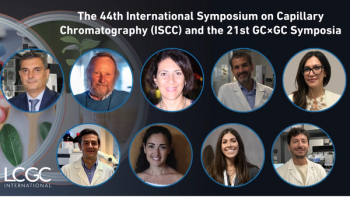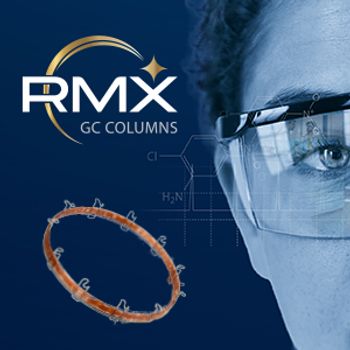
Schoenmakers Awarded 2.5 Million Euros for “A Million Peaks” Project
Peter Schoenmakers of the University of Amsterdam has been awarded a prestigious grant worth 2.5 million Euros by the European Research Council to develop new high-performance separation technology. The grant will fund Schoenmakers’s research project “Separation Technology for A Million Peaks” (STAMP).
An Advanced Grant worth 2.5 million Euros has been awarded to Peter Schoenmakers of the University of Amsterdam (UvA) to develop new high-performance separation technology. This prestigious award, courtesy of the European Research Council (ERC), will fund Schoenmakers’s research project “Separation Technology for A Million Peaks” (STAMP).
The project aims to “demonstrate the viability of spatial two-dimensional and three-dimensional liquid chromatography and confirming the notion that these techniques may yield peak capacities exceeding 50,000 and 500,000,” explained Schoenmakers, who sits on the LCGC Editorial Advisory Board.
The research aims to address much needed innovations in liquid phase separations. The relatively new “Omic” fields such as proteomics or foodomics continue to unravel the complex chemical compositions inherent in biological life. However, the success of these fields has so far been driven by mass spectrometry, the possibilities of which are limited by the separation preceding it. It is this gap that STAMP aims to address.
“We need a ‘quantum jump’ to reach peak capacities in the 100,000 to 1,000,000 and spatial three-dimensional liquid chromatography is a realistic option,” said Schoenmakers. Demonstrating the viability of spatial two-dimensional and three-dimensional liquid chromatography to yield those peak capacities will be no easy task.
The challenges are many in number and a major project to address them was essential. Stationary materials, orthogonal mechanisms, detection systems, and ways to control the flows during the three separation stages are some of the challenges. But if these can be addressed the prospects are exciting.
“Three-dimensional column liquid chromatography (3D LC) requires the first dimension to be impractically low or the third dimension to be extremely fast. In spatial 3D LC, all second-dimension separations and subsequently all third-dimension separations are performed in parallel, alleviating the time constraints and drastically shortening the overall analysis time,” explained Schoenmakers.
The project is set to begin in September 2016 and includes collaborations with Vrije Universiteit Amsterdam, Vrije Universiteit Brussel, and Maastricht University. The impact of the project could be wide reaching, advancing many fields of science, and potentially becoming the catalyst for a whole wave of innovation in the field of analytical chemistry.
Newsletter
Join the global community of analytical scientists who trust LCGC for insights on the latest techniques, trends, and expert solutions in chromatography.




